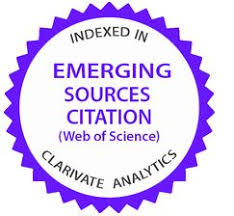Ethics Courses, Teaching Styles, Ethical Culture at Workplace and Values of Accounting Graduates in Malaysia
Abstract
The capability of accountants/ or auditors to furnish false financial statements intentionally shows that they are well equipped with the technical skills and knowledge in accounting but lack ethical values. Thus, it is important that accountants uphold high values in guiding them to behave ethically. As accounting graduates are future accountants, thus the role of the educational institution in producing ethical accounting graduates is crucial to ensure that the graduates are imbued with high ethical values. The paper aims to examine whether ethics courses, teaching styles, and culture at the workplace would influence the values of accounting graduates in Malaysia. Questionnaires were distributed to accounting graduates with less than three years of working experience in finance, accounting, auditing/ or related fields. A total of 344 usable responses were analysed using SmartPLS version 4.0. The research model explains 47.5%, and the study found a positive and significant relationship between the ethics courses taken in the university, teaching styles, and culture at the workplace with the values of accounting graduates. It is also proven that the culture at the workplace plays a crucial role in influencing the personal-professional values of accounting graduates. It is recommended that more ethics courses with various teaching styles should be offered in the accounting curriculum, thereby producing ethical accounting graduates. This will then result in producing accountants with good values who can offer a true and fair view of the financial statements, which will aid organisations to become more accountable and transparent in their business activities.
Keywords: Values; culture at workplace; ethics course; teaching styles
Full Text:
PDFRefbacks
- There are currently no refbacks.
This journal is indexed by:


![]()
![]()
![]()
ISSN : 2180-3838
e-ISSN : 2716-6060
